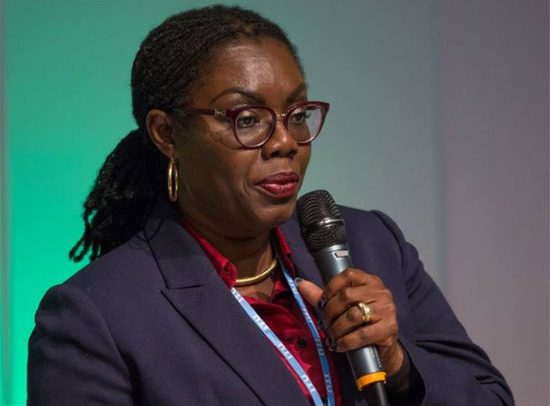Ursula Owusu-Ekuful
Minister of Communications Ursula Owusu-Ekuful, says government’s digitisation agenda is vital for ensuring Ghana’s socio-economic development.
Mrs Owusu-Ekuful said this recently during the Global Ministerial Roundtable discussions on efforts to ensure the development of Information Communication Technology (ICT) and telephony to speed up socio-economic development of Ghana.
The International Telecommunications Union (ITU) World Conference held in Durban, South Africa was aimed at accelerating ICT innovation for socio-economic development through solutions, sharing knowledge and networking to develop and protect local intellectual property.
According to her, government, which has realized the importance of digitization, was embarking on a deliberate agenda to digitize Ghana.
She described the agenda as an ambitious technological programme of infrastructural development with national broadband infrastructure and connectivity with the unserved and underserved at the heart of that drive.
The Minister added that “government, in recognition of the importance of connectivity for socio-economic development deems it imperative that all citizens benefit from the opportunities presented by digitization and it is crucial that we close the digital divide which threatens to further marginalize the most vulnerable in our communities.”
She said as government scales up its digitization effort, the Ghana Investment Fund for Electronic Communications (GIFEC), which is mandated by law to provide financial resources for the establishment of universal service and universal access to all communities and to facilitate the provision of access to basic telephony, internet services, multimedia broadband and broadcasting services, is playing an increasingly critical role in the digital transformation in our countryside.”
According to Mrs. Owusu-Ekuful, the growth in teledensity in urban areas fueled by mobile technological uptake has resulted in “widening digital gap between rural and urban areas and because the extension of connection to the rural areas is not considered commercially viable, they continue to be left behind.
She disclosed that there were almost 2000 communities in Ghana without mobile signals and through GIFEC, the government, is working in collaboration with the network operators to achieve 100% coverage by 2020 and telephone subscription to as many citizens as possible.
The Minister underscored that “we are making significant strides in this journey,” adding that from the year 2006 to 2017, 117 rural telephony sites were constructed in eight years and the Akufo-Addo government has significantly scaled up these operations.
“In 2017 alone 100 rural telephony sites were constructed and activated to over 500 communities where access to mobile signals was not previously available.
She further noted “as at now, we have 80 sites already completed and we are on course to completing 200 sites this year with our partners MTN and Huawei for the second phase of this project which involves the deployment of voice and data connectivity.
By Melvin Tarlue

